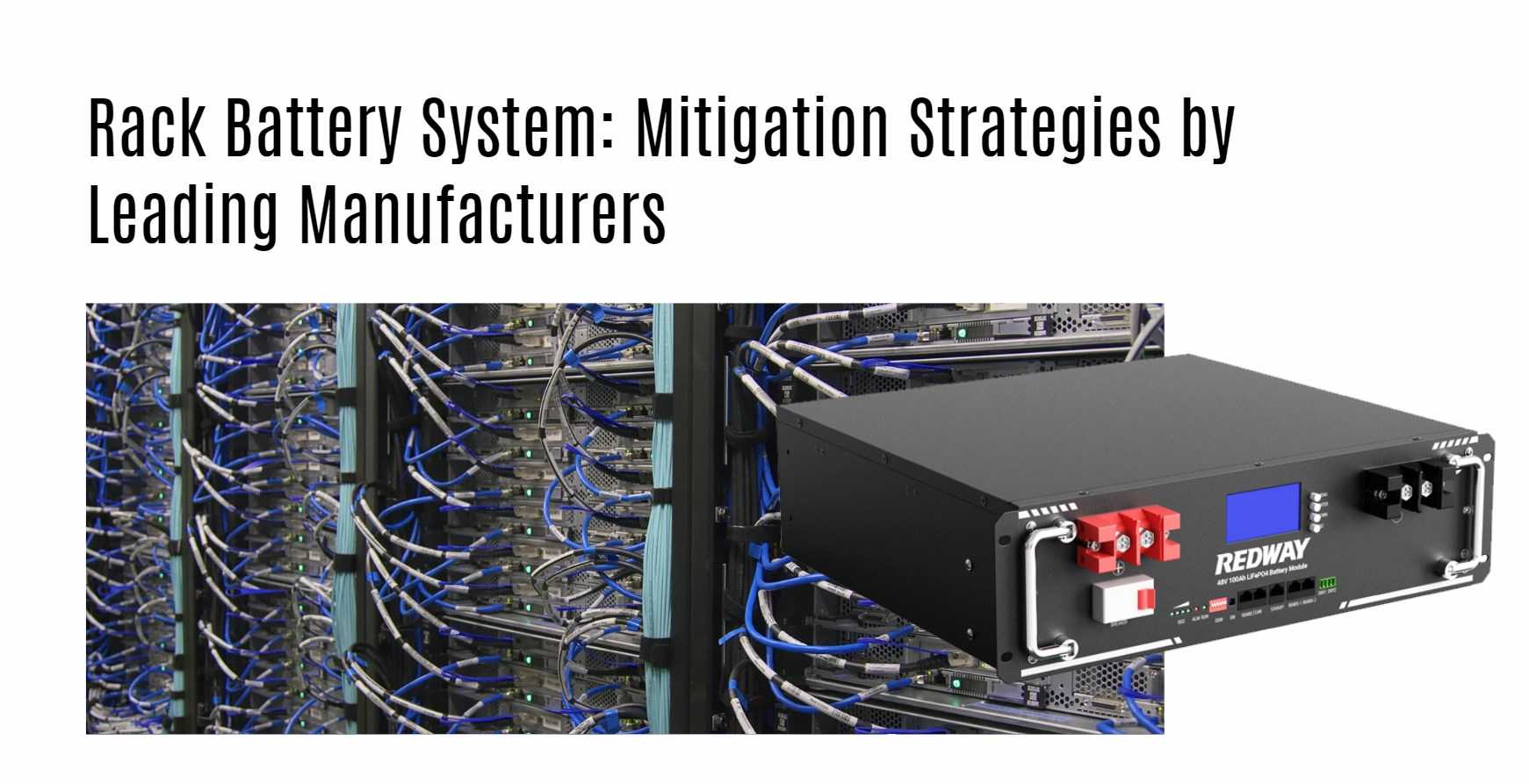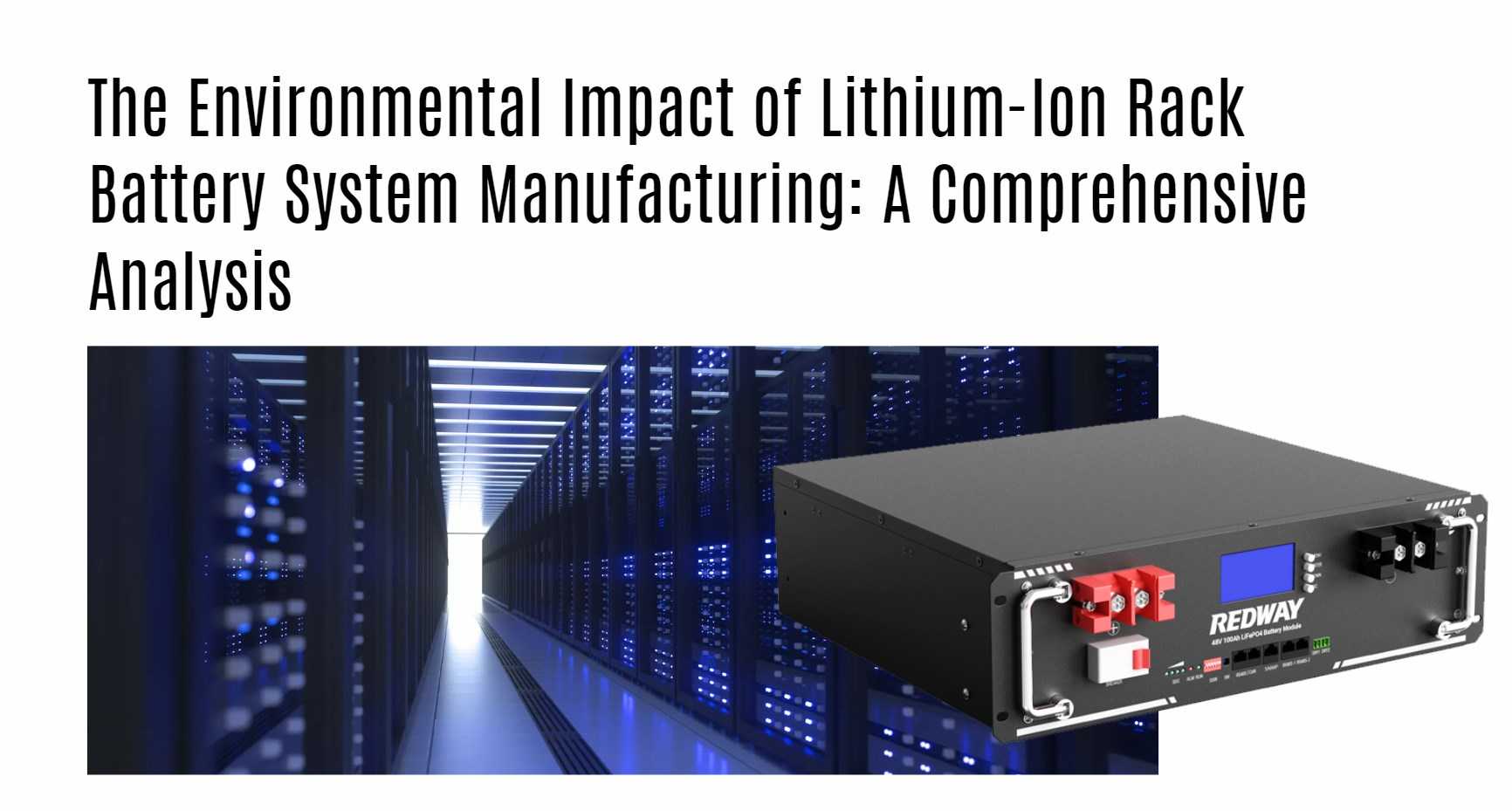The manufacturing of lithium-ion rack battery systems has revolutionized the energy storage sector, offering significant benefits in terms of efficiency and performance. However, this advancement comes with substantial environmental implications. This article provides an in-depth analysis of the environmental impact associated with the production of lithium-ion rack battery systems, exploring both the adverse effects and the mitigation strategies implemented by leading manufacturers.
Environmental Impacts of Raw Material Extraction
Habitat Destruction
The extraction of key raw materials such as lithium, cobalt, nickel, and graphite is essential for lithium-ion battery production. These materials are predominantly sourced from mining operations, often located in ecologically sensitive regions. The mining processes lead to habitat destruction, disrupting local ecosystems and biodiversity.
Pollution
The extraction and processing of these raw materials contribute to significant air and water pollution. Mining activities release dust and harmful chemicals into the atmosphere, while wastewater discharge contaminates local water bodies, posing risks to aquatic life and human health.
Greenhouse Gas Emissions
The energy-intensive nature of raw material extraction and processing results in substantial greenhouse gas (GHG) emissions. The burning of fossil fuels to power mining equipment and processing plants adds to the carbon footprint of lithium-ion battery manufacturing, exacerbating climate change.
Manufacturing Process and Energy Consumption
High Energy Demand
The production of lithium-ion batteries involves several stages, each requiring substantial energy input. The refinement of raw materials, cell manufacturing, and assembly of battery systems are energy-intensive processes, predominantly powered by non-renewable energy sources.
Waste Generation
Manufacturing lithium-ion batteries generates considerable waste, including hazardous materials that require careful handling and disposal. Improper waste management can lead to soil and water contamination, further amplifying environmental damage.
End-of-Life Disposal Challenges
Toxicity of Battery Components
Lithium-ion batteries contain toxic substances such as lead, mercury, and cadmium. If not disposed of correctly, these materials can leach into the environment, causing soil and water pollution and posing health risks to humans and wildlife.
Recycling Difficulties
Recycling lithium-ion batteries is a complex, costly, and energy-intensive process. Despite advancements, the current recycling infrastructure is inadequate to handle the growing volume of end-of-life batteries, leading to significant environmental and logistical challenges.
Mitigation Strategies by Leading Manufacturers
Ethical Sourcing of Raw Materials
Companies like Redway Battery are at the forefront of implementing sustainable practices in lithium-ion battery manufacturing. By sourcing raw materials from suppliers that adhere to stringent environmental and labor standards, they aim to reduce the ecological and social footprint of their products.
Use of Renewable Energy
To address the high energy demands of the manufacturing process, Redway Battery utilizes renewable energy sources such as solar and wind power. This shift not only reduces GHG emissions but also promotes the use of cleaner energy solutions in industrial applications.
Advanced Recycling Techniques
Innovative recycling techniques are being developed to enhance the efficiency and effectiveness of battery recycling. These methods aim to recover a higher percentage of valuable materials, reduce waste, and minimize the environmental impact of end-of-life disposal.
Development of Sustainable Battery Chemistries
Exploration of alternative battery chemistries is another critical strategy. Solid-state batteries, for instance, offer a safer and more environmentally friendly option compared to traditional lithium-ion batteries. These batteries eliminate the need for liquid electrolytes, reducing the risk of leaks and fires.

Conclusion
The environmental impact of lithium-ion rack battery system manufacturing is multifaceted, encompassing habitat destruction, pollution, and significant energy consumption. However, companies like Redway Battery are pioneering efforts to mitigate these effects through responsible sourcing, renewable energy use, and innovative recycling techniques. As the demand for energy storage solutions grows, prioritizing sustainability in the manufacturing process is imperative to ensure a greener future.
Redway Power produces 12V Series Lithium Iron Phosphate Battery (LiFePO4 Battery) that has vast applications in RV, Sightseeing Carts, Marine, Scooters, Tricycles, Emergency lighting.




